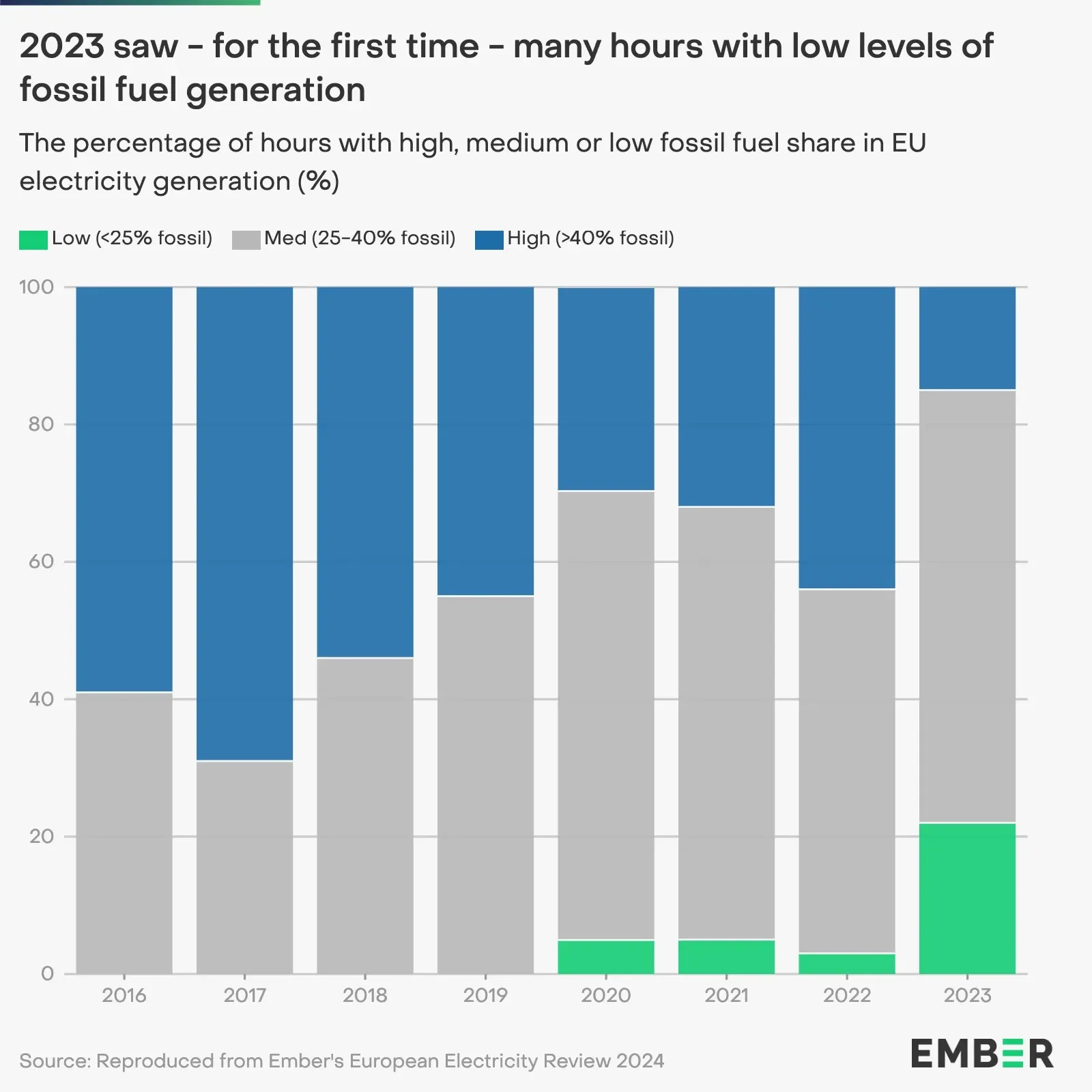Where Data Tells the Story
© Voronoi 2026. All rights reserved.

Clean flexibility reduces the need for fossil fuel backup in an electricity system dominated by renewables: the final piece of the puzzle in decarbonising power supply.
A rapid phase out of coal and gas power is necessary to achieve the EU’s climate targets. This shift is already well on its way, with wind and solar providing more than a quarter (27%) of EU electricity in 2023 for the first time. This increased wind and solar generation is increasingly replacing baseload fossil generation, meaning that renewable sources now provide a sizable, stable share of the EU’s power throughout the year. And this transition is clear even on a more granular level: in 2023, 24% of hours saw less than a quarter of electricity coming from fossil fuels, a large jump from just 4% of hours in 2022.
Clean flexibility sources can further help to reduce the hours when expensive fossil technologies such as gas power are used to fill the gap between supply and demand: batteries and demand side flexibility are the new peakers.